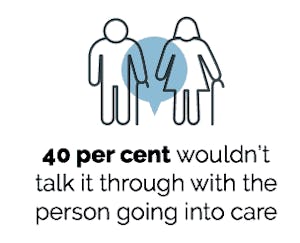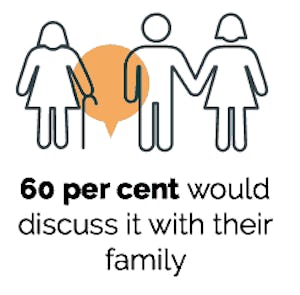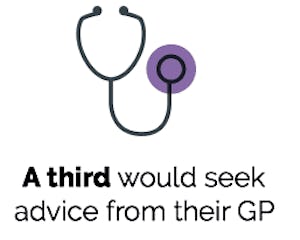Families delaying care – and floundering with planning and finances
While people are clearly talking more about ageing and illness, it appears they don’t know what to do – or where to turn when the time comes to exploring financing care options. According to research from the Live-in Care Hub, just a third of people seek advice from their GP and less than a quarter would talk to another health professional. And while 60 per cent would discuss it with their family, sadly, 40 per cent wouldn’t actually talk it through with the person going into care.
Dominique Kent from The Live-In Care Hub concludes: “People are clearly blundering into care. Our Live-in Homecare Information Hub members are noticing families are leaving care planning later and later these days and are often at crisis point with a parent or elderly relative before they start looking around. This leaves them no time to research the options.”





Probably the most shocking finding of all is that with such a significant financial outlay on the horizon, just 1.9% of people spoke to an independent financial advisor to research and plan good quality care. Most respondents think care costs are either ‘between £251 and £500 per week’ (21.4%) or ‘between £501 and £1,000 per week’ (22.5%), although in reality, whether it’s for residential care homes – or 24/7 live-in homecare, fees start from about £750 per week for carers and around £1,400 per week for nursing care, so they’re a long way out.
Navigating your way through the financial difficulties of paying for care can be challenging but having a financial advisor on board will help your choices become more clear. And while live-in homecare may be the lesser known option, it certainly has the support of many health professionals. Dr. Glen Mason, Director of People, Communities and Local Government at The Department of Health concludes: “Live-in care is a long established but relatively unknown, growing alternative to residential and nursing care that substantially extends the care choice available to the individual. It allows someone with high levels of need to remain in their own home and community and lead a good quality life in familiar surroundings. I expect live-in care to continue to grow in popularity and to become the high quality first care choice of many people.”
For more information on how to pay for care, have a read of our financial blog and find out if you are eligible for NHS funding.
If you are interested to find out more about how we can help you remain in your own home, please get in touch, we’d love to hear from you.








